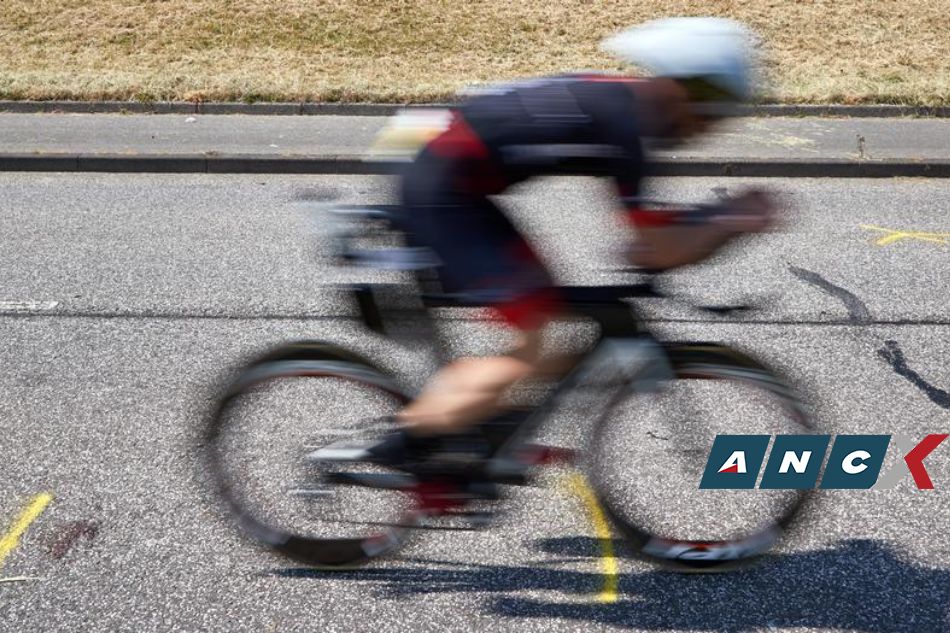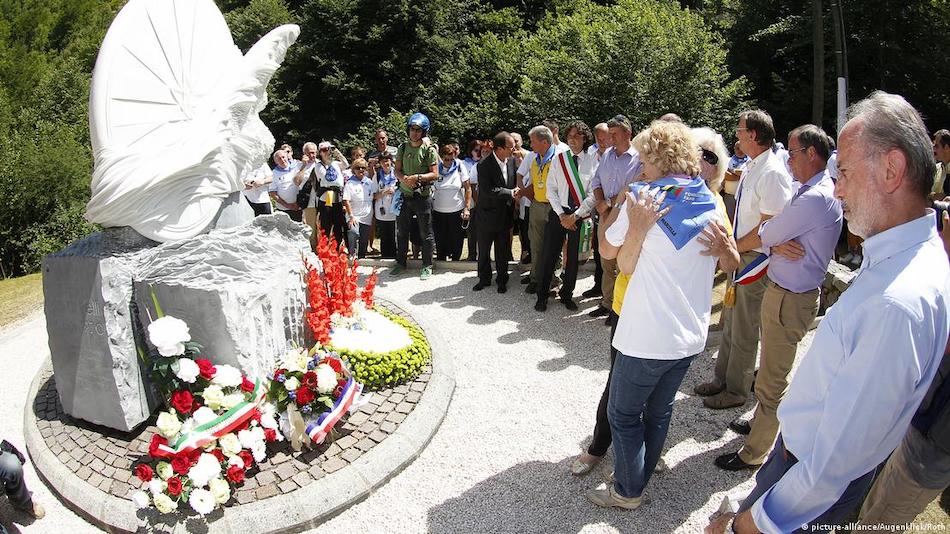Last weekend's Ironman European Championship in Hamburg was overshadowed by an accident in which a motorcycle carrying a television cameraman collided head on with a triathlete during the cycling race, claiming the life of the motorcycle driver and seriously injuring the cyclist.
"I had to pass the scene of the accident twice," one triathlete recalled on an internet forum. "It was only after I'd crossed the finish line that I learned of the fatality."
While many questions have been raised about how this could happen, there has been little talk of the psychological impact on the around 2,000 competitors, many of whom, like the triathlete who wrote that post, had to carry their bikes past the scene of the accident on subsequent laps.
A tragic crash marred the 2023 Ironman in Hamburg.https://t.co/yLn77lDnKt
— DW Sports (@dw_sports) June 5, 2023
While there are plenty of studies on the psychological impact on those involved in serious sports accidents, "relatively little is known about the psychological impact on athletes who were not involved, but who witnessed an accident or an injury," Jens Kleinert, head of the Psychological Institute at the German Sport University in Cologne, tells DW.
Experience helps
What is known, though, is that such an event triggers various types of reaction depending upon the individual athlete.
"Some have the ability to concentrate 100% on their own performance despite the shock and to completely block the incident from their mind," Kleinert said. "Experienced athletes are more often able to do so because they have developed an incredible ability to focus."
However, experienced, or not, some athletes aren't capable of blocking out what they've seen, and this can haunt them throughout the rest of the race.
"This can lead to distraction and, if this becomes too great, it can put the rider at increased risk of also being involved in an accident," Kleinert notes, arguing that the organizers made the right decision by not informing the riders of the fatality while the race was ongoing.
The case against cancelation
When Italian professional cyclist Fabio Casartelli died in a crash during the 1995 Tour de France, the stage winner, Richard Virenque, was not informed until after he reached the finish line. The Frenchman burst into tears upon learning of the news. As in Hamburg on Sunday, the Tour organizers had decided against aborting the stage.
In the history of Formula 1, just five races have been called off due to fatal accidents. Of these, four were restarted and completed on the same day. Only the 1975 Spanish Grand Prix was completely abandoned – after five spectators were killed when a car veered off the track and into the stands.
But while there are arguments and precedents to support the decision of Ironman European Championship organizers to allow Sunday's race to continue, it's far from a clearcut issue.
Where to draw the line?
"I wouldn't expect anyone to decide the undecidable," sports ethicist Yvonne Thorhauer, a professor at the Accadis University of Applied Sciences in Bad Homburg, tells DW.
"At what point do you stop the race? When someone's life is in danger and they go to hospital? Or only after they die?"
Thorhauer, a former German kickboxing champion, is now a referee who has officiated at world championships. She tells DW that she has thought about how she would react if someone died in a major event that she was involved in.
"I would stop refereeing immediately and wouldn't return that day. I would be out," she says. "But I wouldn't go to the president of the federation and demand that the entire world championship be canceled."
She explains that such major events are extremely important to the athletes, who will have trained for a year in preparation. However, she says she would do so if it were a minor, regional tournament.
Showing respect
The sports ethicist also says that while it is acceptable for a major event to continue despite a fatality, it's extremely important for it to be done in a respectful manner.
"You can definitely go ahead with the award ceremony afterwards – but you need to be discreet and be sure that the tragic accident doesn't go unmentioned."
IRONMAN Hamburg tragedy: ‘We need a change, no discussion’ says Lisa Norden #triathlon #swimbikerun #triclub https://t.co/y7mXyFHECs
— Triathlon News (@trinewsonly) June 5, 2023
Longer-term impact
Whether conducting the award ceremony in the "right" way can help bring closure for the athletes is unclear.
"Again, personalities are very different," says Kleinert, the psychologist. "Some are better at blocking it out. Others reflect on themselves and the risk in the days and weeks after the incident and think, 'That could happen to me!'
"Older athletes in particular, who may already have a family of their own, may ask themselves: 'Do I still want to take this risk?'"
Kleinert points out that there is no way to fully prepare an athlete for such events. However, they can learn techniques for mentally processing tragedies and keeping their concentration levels high during competition.
The psychological impact on the amateur triathlete who was seriously injured in the accident in Hamburg is likely to be much more serious.
"Something always lingers, even if it's just the memory. The worse the accident was, the harder it is to cope with it," Kleinert says.
"After a serious accident or injury, sports psychological, sometimes even psychotherapeutic help may be required. 5% to 10% of victims of serious sports accidents experience depression-like symptoms because the body, which is so important, is then perceived as vulnerable and the athletes questions whether to carrying on with their sport."
This article was adapted from German by Chuck Penfold.



